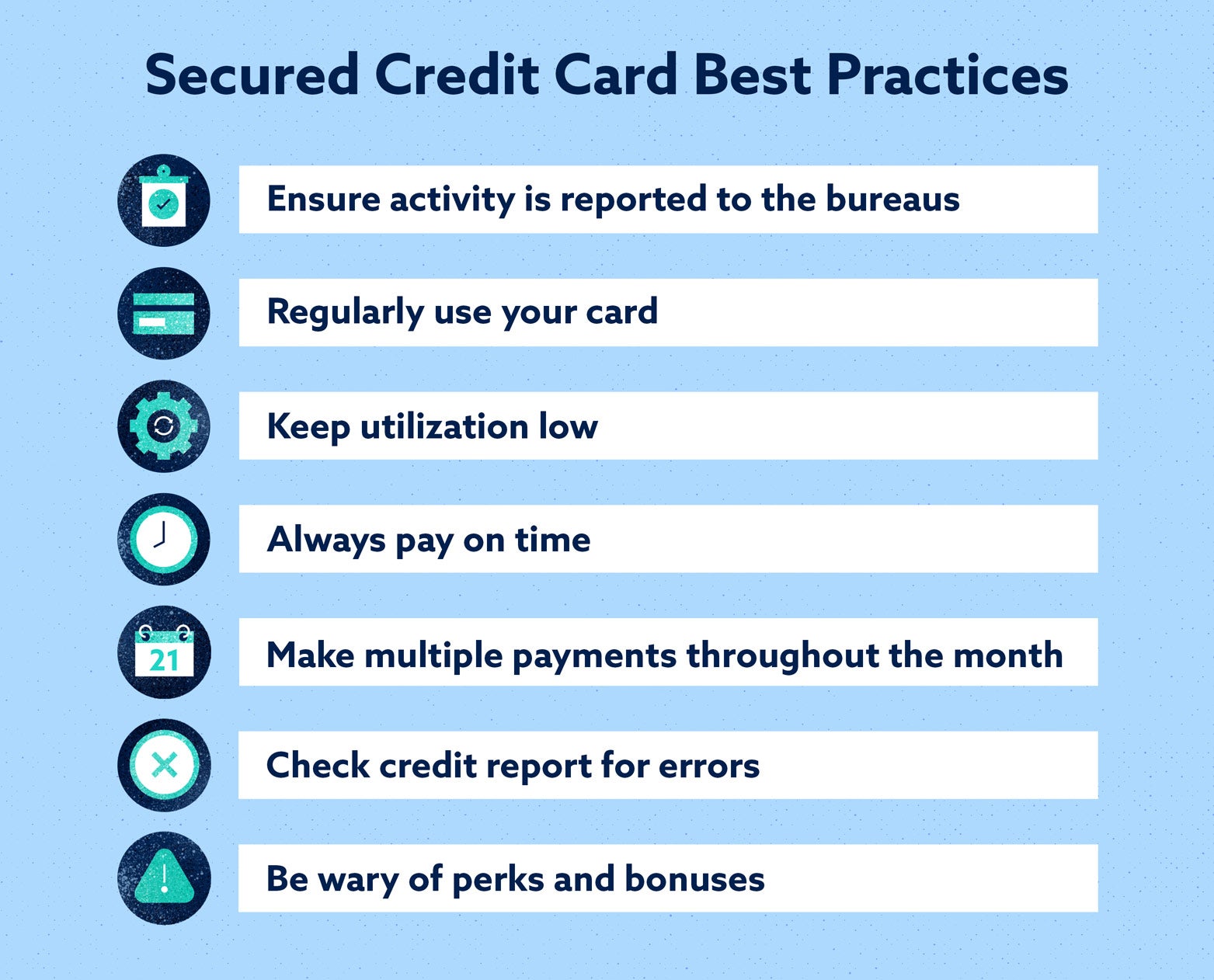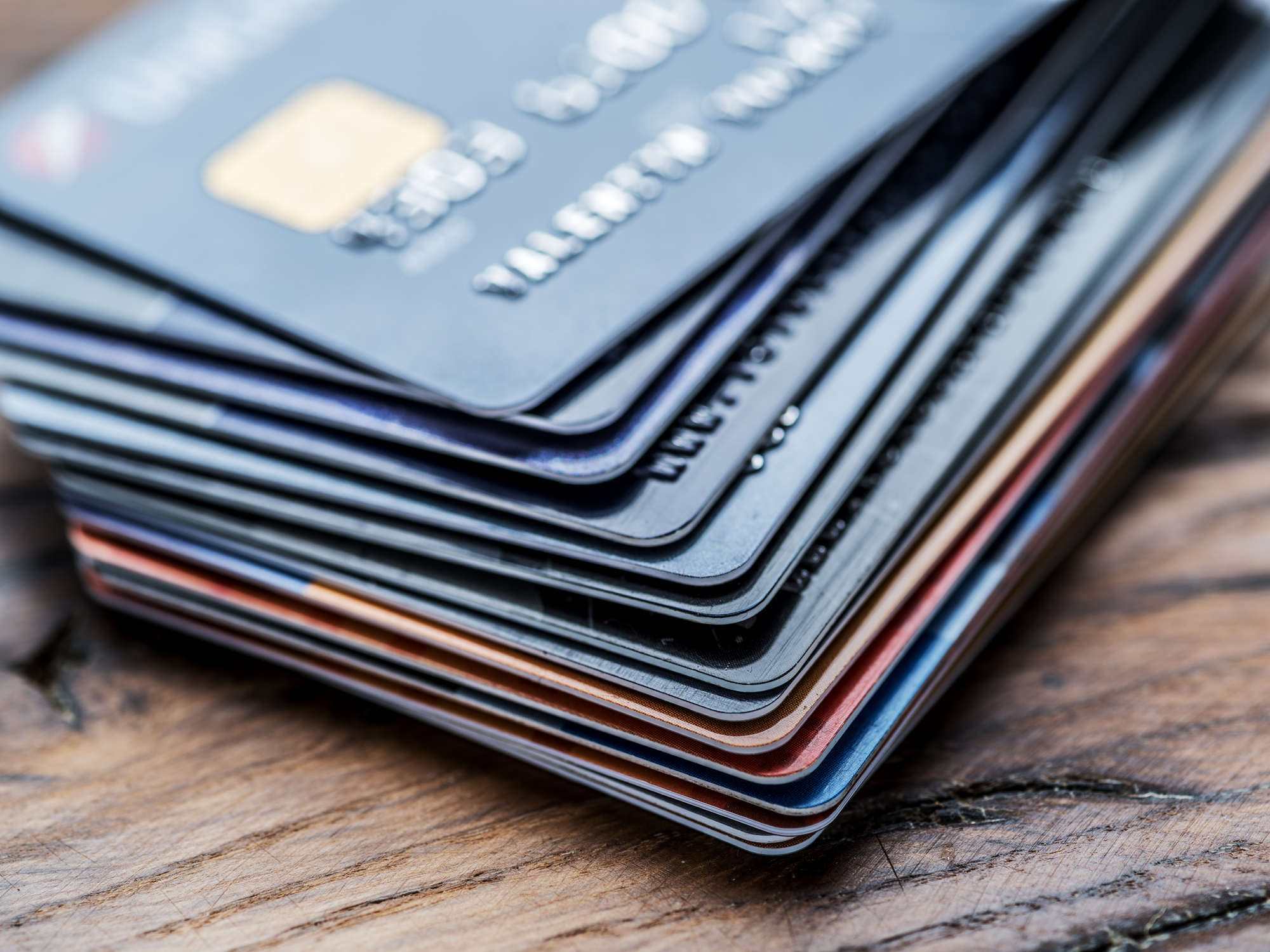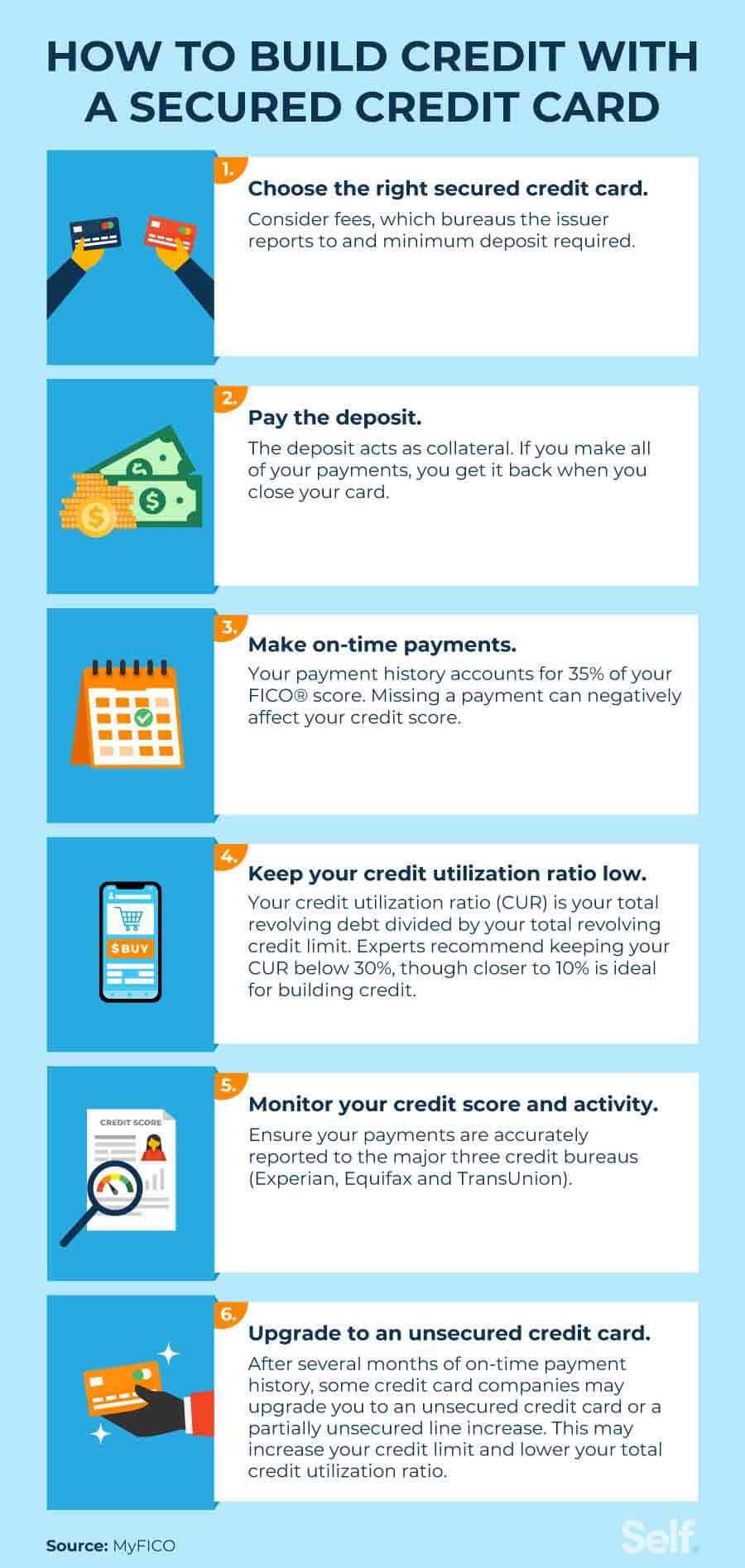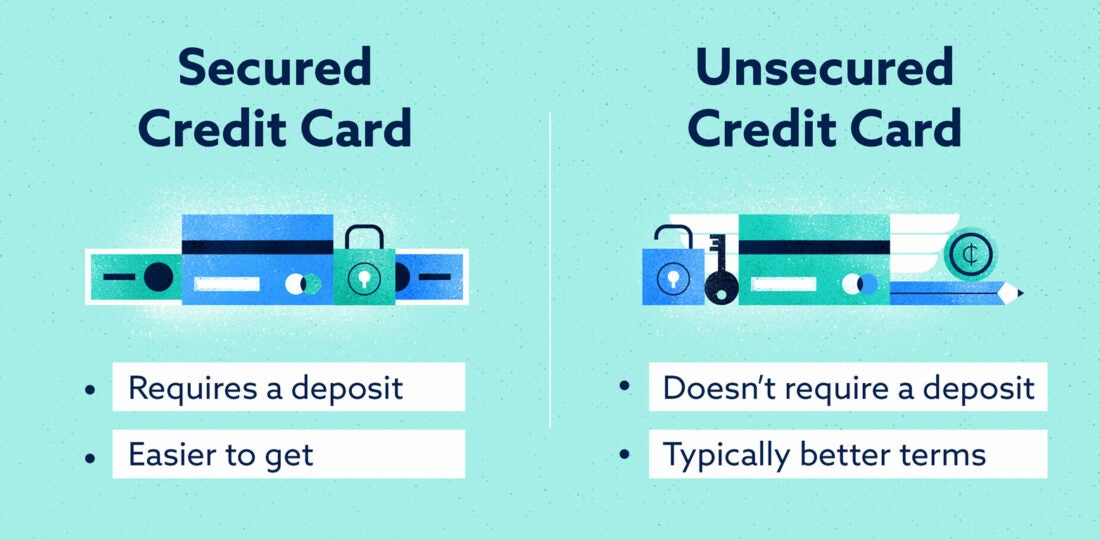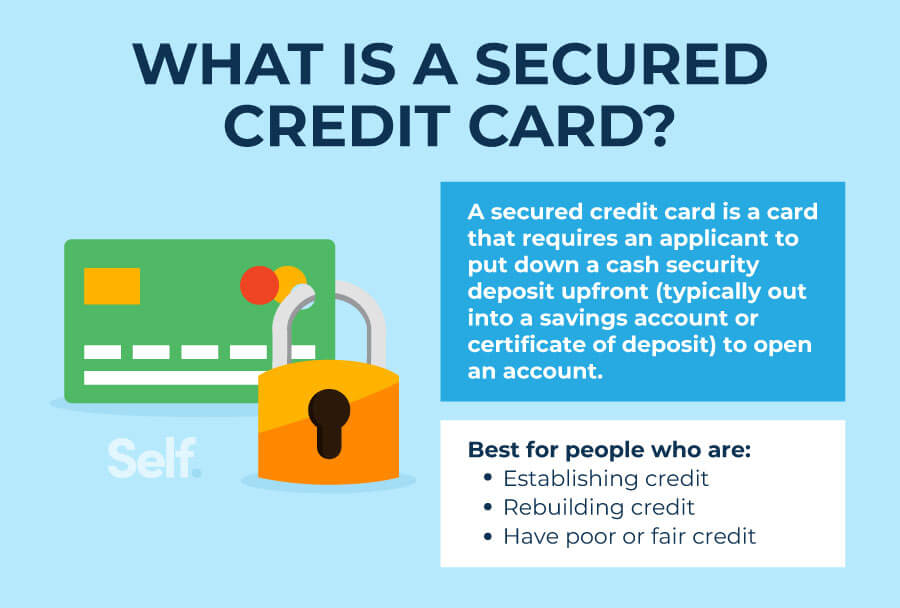Understanding the Benefits of Secured Credit Cards for Bad Credit
For individuals struggling with bad credit, finding a reliable and effective way to rebuild their credit score can be a daunting task. One option that has gained popularity in recent years is the use of secured credit cards. A secured credit card is a type of credit card that requires a security deposit, which is typically equal to the credit limit, to open an account. This deposit serves as collateral in case the cardholder defaults on payments.
The benefits of using a secured credit card to rebuild credit are numerous. For one, secured credit cards offer lower interest rates and fees compared to traditional credit cards, making it easier for individuals with bad credit to manage their debt. Additionally, secured credit cards provide the opportunity to establish a positive payment history, which is a crucial factor in determining credit scores.
When used responsibly, a secured credit card can be an effective tool for rebuilding credit. By making on-time payments and keeping credit utilization low, individuals can demonstrate their creditworthiness and improve their credit score over time. Furthermore, secured credit cards can help individuals with bad credit to re-establish a positive credit history, which can lead to better loan terms and lower interest rates in the future.
In fact, using a secured credit card can be a more effective way to rebuild credit than other methods, such as taking out a credit-builder loan or becoming an authorized user on someone else’s credit card. This is because secured credit cards offer more flexibility and control, allowing individuals to manage their credit limit and make payments on their own terms.
Overall, secured credit cards offer a valuable opportunity for individuals with bad credit to rebuild their credit score and improve their financial situation. By understanding the benefits and using a secured credit card responsibly, individuals can take the first step towards achieving better credit and a brighter financial future.
When searching for the best secured credit card for bad credit, it’s essential to consider several factors, including the security deposit requirement, interest rate, fees, and credit limit. By choosing a reputable issuer and using the card responsibly, individuals can reap the benefits of a secured credit card and start rebuilding their credit today.
How to Choose the Best Secured Credit Card for Your Needs
When searching for the best secured credit card for bad credit, it’s essential to consider several key factors to ensure you find the right card for your needs. With so many options available, it can be overwhelming to navigate the various features and benefits of each card. However, by understanding what to look for, you can make an informed decision and choose a secured credit card that helps you rebuild your credit.
One of the most critical factors to consider is the security deposit requirement. This is the amount of money you’ll need to deposit to open the account, which will typically become your credit limit. Look for a card with a low or no annual fee, as well as a competitive interest rate. Some secured credit cards may offer 0% introductory APRs or low ongoing APRs, which can help you save money on interest charges.
Another important factor to consider is the credit limit. While a higher credit limit may seem appealing, it’s essential to remember that you’ll need to make a larger security deposit to secure the card. Look for a card with a credit limit that aligns with your needs and budget. Additionally, consider the fees associated with the card, including late payment fees, foreign transaction fees, and balance transfer fees.
When comparing different secured credit card offers, it’s also essential to consider the issuer’s reputation and customer service. Look for a card from a reputable issuer with a strong track record of customer satisfaction. You should also consider the card’s reporting policies, as some issuers may report your payments to all three major credit bureaus, while others may only report to one or two.
To find the best secured credit card for bad credit, it’s also a good idea to read reviews and compare features side-by-side. Websites like NerdWallet, CreditCards.com, and Bankrate can provide valuable insights and comparisons of various secured credit cards. By doing your research and considering your options carefully, you can find a secured credit card that meets your needs and helps you rebuild your credit.
Some popular secured credit cards for bad credit include the Discover it Secured, Capital One Secured Mastercard, and Wells Fargo Secured Credit Card. These cards offer competitive features and benefits, including low fees, competitive interest rates, and flexible credit limits. By considering these options and doing your research, you can find the best secured credit card for your needs and start rebuilding your credit today.
Top Secured Credit Cards for Bad Credit: A Review of Popular Options
When it comes to finding the best secured credit card for bad credit, there are several options to consider. Here, we’ll review three popular secured credit cards that can help you rebuild your credit: the Discover it Secured, Capital One Secured Mastercard, and Wells Fargo Secured Credit Card.
The Discover it Secured is a top choice for those with bad credit. This card offers a competitive interest rate, no annual fee, and a credit limit that’s equal to your security deposit. Additionally, Discover reports your payments to all three major credit bureaus, helping you establish a positive payment history. The Discover it Secured also offers 1% – 2% cashback on purchases, making it a great option for those who want to earn rewards while rebuilding their credit.
The Capital One Secured Mastercard is another popular option for those with bad credit. This card offers a lower security deposit requirement than some other secured credit cards, making it more accessible to those who may not have a lot of money to deposit. The Capital One Secured Mastercard also offers a competitive interest rate and no annual fee. Additionally, Capital One reports your payments to all three major credit bureaus, helping you establish a positive payment history.
The Wells Fargo Secured Credit Card is a great option for those who want a secured credit card with a lower interest rate. This card offers a competitive interest rate and no annual fee, making it a great choice for those who want to save money on interest charges. The Wells Fargo Secured Credit Card also offers a credit limit that’s equal to your security deposit, and Wells Fargo reports your payments to all three major credit bureaus.
When comparing these three secured credit cards, it’s essential to consider your individual needs and financial situation. If you’re looking for a card with a competitive interest rate and no annual fee, the Discover it Secured or Capital One Secured Mastercard may be a good choice. If you’re looking for a card with a lower interest rate, the Wells Fargo Secured Credit Card may be a better option.
Ultimately, the best secured credit card for bad credit will depend on your individual needs and financial situation. By considering the features and benefits of each card, you can make an informed decision and choose a secured credit card that helps you rebuild your credit.
What to Expect from a Secured Credit Card: Fees, Interest Rates, and Credit Limits
When considering a secured credit card, it’s essential to understand the typical fees, interest rates, and credit limits associated with these cards. These factors can impact your credit score and financial situation, so it’s crucial to know what to expect.
Fees are a common feature of secured credit cards. These fees can include annual fees, late payment fees, and foreign transaction fees. The annual fee can range from $25 to $99, depending on the issuer and the specific card. Late payment fees can range from $25 to $38, and foreign transaction fees can range from 1% to 3% of the transaction amount.
Interest rates are another important factor to consider when choosing a secured credit card. The interest rate can range from 15.99% to 24.99% APR, depending on the issuer and the specific card. Some secured credit cards may offer a 0% introductory APR, but this rate is usually only available for a limited time.
Credit limits are also an essential factor to consider when choosing a secured credit card. The credit limit is typically equal to the security deposit, which can range from $200 to $2,500. Some secured credit cards may offer a higher credit limit, but this usually requires a larger security deposit.
It’s essential to understand how these factors can impact your credit score and financial situation. Missing payments or exceeding credit limits can negatively impact your credit score, while making on-time payments and keeping credit utilization low can positively impact your credit score.
When choosing a secured credit card, it’s crucial to consider the fees, interest rates, and credit limits associated with the card. By understanding these factors, you can make an informed decision and choose a secured credit card that meets your needs and helps you rebuild your credit.
In addition to understanding the fees, interest rates, and credit limits, it’s also essential to consider the issuer’s reputation and customer service. Look for a card from a reputable issuer with a strong track record of customer satisfaction.
By considering these factors and choosing a secured credit card that meets your needs, you can start rebuilding your credit and improving your financial situation.
Using a Secured Credit Card to Rebuild Credit: Best Practices
Using a secured credit card can be an effective way to rebuild credit, but it’s essential to use the card responsibly and follow best practices. Here are some tips to help you get the most out of your secured credit card:
Make on-time payments: Payment history is a significant factor in determining your credit score. Making on-time payments is crucial to rebuilding your credit. Set up automatic payments or reminders to ensure you never miss a payment.
Keep credit utilization low: Keep your credit utilization ratio low by keeping your balance low compared to your credit limit. Aim to use less than 30% of your available credit to show lenders you can manage your debt responsibly.
Monitor your credit reports: Check your credit reports regularly to ensure they are accurate and up-to-date. You can request a free credit report from each of the three major credit bureaus (Experian, TransUnion, and Equifax) once a year.
Don’t apply for too many credit cards: Applying for too many credit cards can negatively impact your credit score. Only apply for credit cards that you need, and space out your applications if you need to apply for multiple cards.
Don’t close old accounts: Closing old accounts can negatively impact your credit score by reducing the average age of your credit accounts. Keep old accounts open and in good standing to show lenders you have a long credit history.
Be patient: Rebuilding credit takes time, so be patient and don’t expect overnight results. Continue to use your secured credit card responsibly and monitor your credit reports to track your progress.
By following these best practices, you can use your secured credit card to rebuild your credit and improve your financial situation. Remember to always use your card responsibly and make on-time payments to get the most out of your secured credit card.
In addition to using a secured credit card, there are other ways to rebuild credit, such as becoming an authorized user on someone else’s credit card or taking out a credit-builder loan. However, a secured credit card can be a great option for those who want to establish a positive payment history and improve their credit score.
Common Mistakes to Avoid When Using a Secured Credit Card
When using a secured credit card, it’s essential to avoid common mistakes that can negatively impact your credit score and financial situation. Here are some mistakes to avoid:
Missing payments: Missing payments is one of the most significant mistakes you can make when using a secured credit card. Late payments can result in late fees, interest charges, and negative marks on your credit report. Set up automatic payments or reminders to ensure you never miss a payment.
Exceeding credit limits: Exceeding your credit limit can result in over-limit fees, interest charges, and negative marks on your credit report. Keep your balance low compared to your credit limit to avoid exceeding your credit limit.
Applying for too many credit cards: Applying for too many credit cards can negatively impact your credit score. Only apply for credit cards that you need, and space out your applications if you need to apply for multiple cards.
Not monitoring credit reports: Not monitoring your credit reports can result in errors or inaccuracies going unnoticed. Check your credit reports regularly to ensure they are accurate and up-to-date.
Not paying the balance in full: Not paying the balance in full can result in interest charges and negative marks on your credit report. Try to pay the balance in full each month to avoid interest charges.
Using a secured credit card for cash advances: Using a secured credit card for cash advances can result in high fees and interest charges. Avoid using your secured credit card for cash advances unless absolutely necessary.
By avoiding these common mistakes, you can use your secured credit card effectively and avoid negatively impacting your credit score and financial situation. Remember to always use your card responsibly and make on-time payments to get the most out of your secured credit card.
In addition to avoiding these mistakes, it’s also essential to understand the terms and conditions of your secured credit card. Read the fine print and understand the fees, interest rates, and credit limits associated with your card.
Alternatives to Secured Credit Cards: Exploring Other Credit-Building Options
While secured credit cards can be an effective way to rebuild credit, they may not be the best option for everyone. Fortunately, there are alternative credit-building options available. Here are a few alternatives to consider:
Becoming an authorized user on someone else’s credit card: If you have a friend or family member with good credit, you can ask them to add you as an authorized user on one of their credit cards. This can help you establish a positive payment history and improve your credit score.
Taking out a credit-builder loan: A credit-builder loan is a type of loan specifically designed to help people build credit. These loans are typically offered by credit unions or community banks and require regular payments over a set period of time.
Using a credit scoring app: There are several credit scoring apps available that can help you monitor your credit score and provide tips on how to improve it. Some popular options include Credit Karma, Credit Sesame, and Experian Boost.
These alternative credit-building options can be a good choice for those who may not qualify for a secured credit card or who want to explore other options. However, it’s essential to do your research and understand the terms and conditions of any credit-building option before applying.
When considering alternative credit-building options, it’s crucial to evaluate the pros and cons of each option. For example, becoming an authorized user on someone else’s credit card may not provide the same level of credit-building benefits as taking out a credit-builder loan. On the other hand, using a credit scoring app can provide valuable insights into your credit score and help you identify areas for improvement.
Ultimately, the best credit-building option for you will depend on your individual financial situation and goals. By exploring alternative credit-building options and doing your research, you can find the best way to rebuild your credit and achieve financial stability.
Conclusion: Finding the Best Secured Credit Card for Your Path to Better Credit
In conclusion, finding the best secured credit card for bad credit requires careful consideration of several factors, including the security deposit requirement, interest rate, fees, and credit limit. By understanding the benefits and drawbacks of secured credit cards and following the tips outlined in this article, you can make an informed decision and choose a secured credit card that meets your needs and helps you rebuild your credit.
Remember, rebuilding credit takes time and effort, but with the right tools and strategies, you can achieve financial stability and improve your credit score. By using a secured credit card responsibly and making on-time payments, you can establish a positive payment history and improve your credit score over time.
When searching for the best secured credit card for bad credit, consider the following key takeaways:
Look for a card with a low security deposit requirement and competitive interest rate.
Choose a card with low fees and a reasonable credit limit.
Consider the credit-building benefits of the card, including the opportunity to establish a positive payment history and improve your credit score.
By following these tips and choosing the right secured credit card for your needs, you can start rebuilding your credit and achieving financial stability.
Remember, the best secured credit card for bad credit is one that meets your individual needs and financial situation. By doing your research and comparing different secured credit card offers, you can find the best card for your path to better credit.

